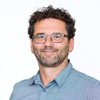Collaboration, commitment and “no regrets” actions to kick start a circular economy for packaging
#MissionCircular interview with Niels van Marle, Packaging Expert at the Netherlands Institute for Sustainable Packaging (KIDV)
Q: Why is packaging become circular such an important objective – and what are the major benefits you believe it can create for our planet, packaging and the businesses that deliver it?
At European and national level, the solution is sought in a circular economy, to guide us from a harvest, make, use and dispose economy to one where valuable raw materials are used optimally and pollution and waste are eliminated. The packaging industry too must look for ways to put less pressure on available resources by using fewer, and less polluting, raw materials. Recyclability is an essential step towards a circular value chain, alongside reducing unnecessary packaging and reusing it where we can. If we do not collectively make these changes, the societal costs of mitigating the effects of climate change will be much higher.
Creating this transition is a complicated process, takes time and is difficult to predict. Nevertheless, it is essential for companies to take steps now, otherwise they will miss the boat in the future and their survival may be threatened. The advantage for those actively work on sustainability is that they can influence the creation of the new economy and possibly emerge from it stronger.
Q: What are the key barriers your see to making it happen and how are you trying to overcome them working as a ‘Community of Practice’?
The actual implementation is a major challenge for all parties in the chain and with different views across various European countries about a definitive approach. Especially when choices can have negative consequences for some parties, financially or strategically, while other parties benefit from them. Ultimately, a balance must be found between the individual interests and best results for the total value chain. That is difficult.
KIDV initiated a Community of Practice (CoP) for flexible plastic packaging with a consortium of companies facing similar challenges related to developing metallised flexible packaging that is suitable for the circular economy. The consortium members are FrieslandCampina, Intersnack, Jacobs Douwe Egberts, Mars Wrigley , Pepsico, Nestlé and Unilever. In the CoP, we have noticed that parties find it difficult to take decisions if they are not sufficiently confident about which direction legislation is going, and if investments will ultimately yield a return. Within the CoP we try to navigate the best way forward, drawing on the knowledge of many stakeholders within CEFLEX, and seeking dialogue with policy makers and stakeholders who must ensure that packaging designed according to CEFLEX guidelines is actually collected, sorted, recycled and used at the highest possible level of application. In most cases, there is still a lot of change to be made in the value chain to reach this point. Many choices still need to be made and there needs to be more governance to align definitions, set goals and create business models with all stakeholders.
One thing is clear, companies cannot sit still and wait until every condition is perfect. Experience shows that the infrastructure does not change overnight. Companies need to get the transition moving and look at the big picture. This is well represented in the D4ACE guidelines, among others. They must look for ‘no regret’ steps, particularly when it comes to the use of polyolefin flexible packaging materials. What can they do to minimize material usage and adapt their packaging to make it at least suitable for recycling? Question how they can innovate and commit to solving our biggest dilemmas.
Within the CoP, we have made an overview of these dilemmas and steps we can take to overcome them, which will be shared publicly. These solutions are actionable by many to boost use of recycled materials in new products today – and accelerate our move towards the circular economy of tomorrow.
As part of this work, KIDV host a webinar dedicated to ‘Unlocking the Flexible Packaging Dilemma’, 11 February 2021 at 14-16:00 CET, sharing their sector-wide approach and clearly map out the dilemma of circular flexible packaging from various perspectives.

Niels van Marle,
Packaging Expert at the Netherlands Institute for Sustainable Packaging (KIDV)
